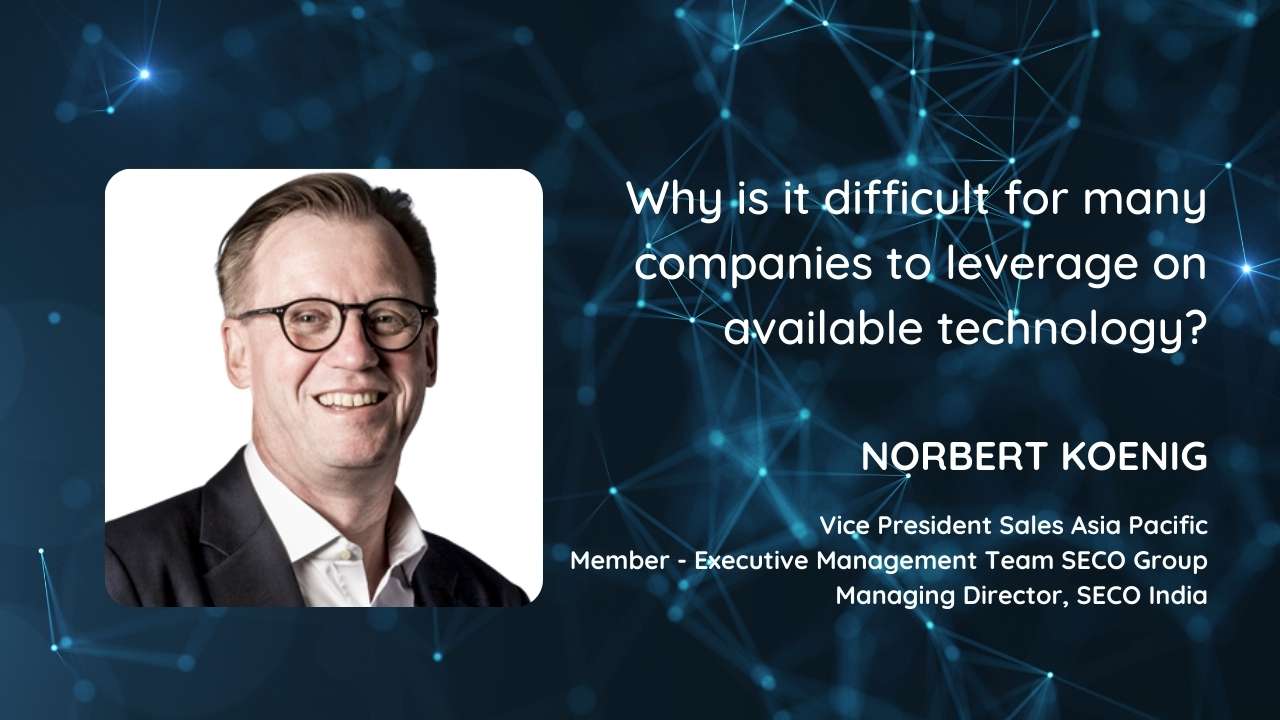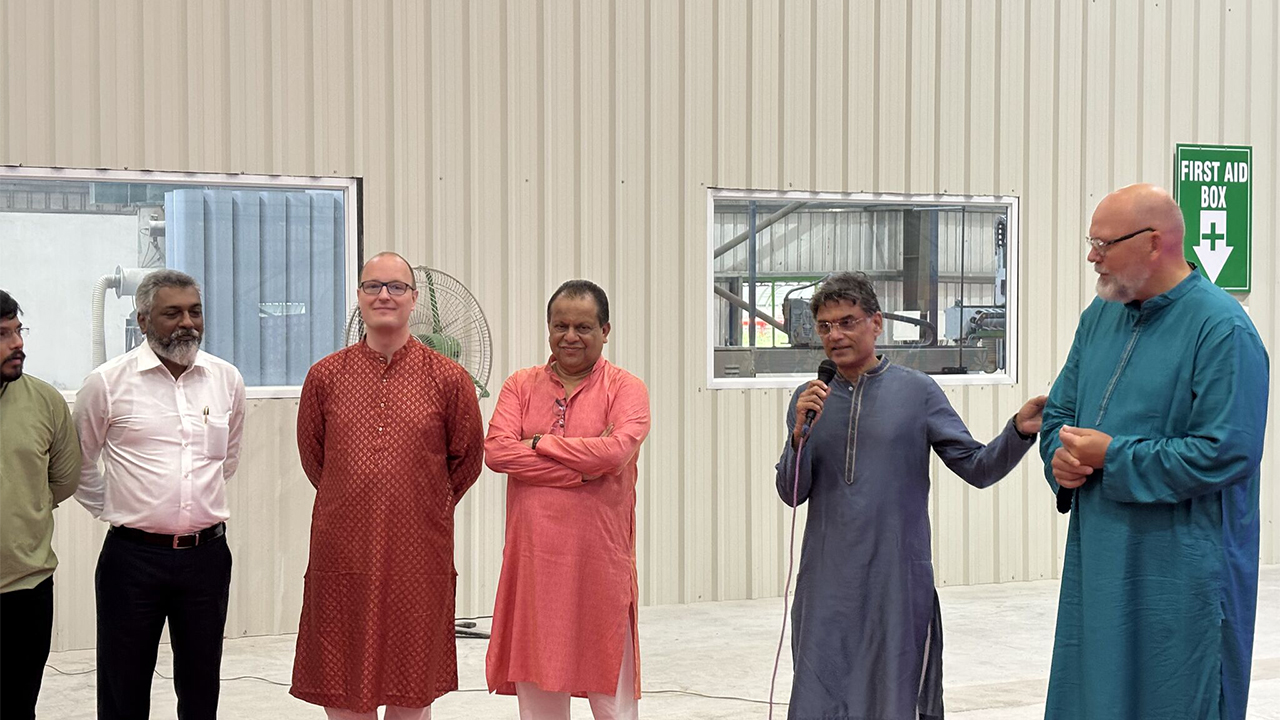Why is it difficult for many companies to leverage on available technology?
#Industry4 #Production #DigitalNobert Koenig, Vice President Sales Asia Pacific region; Managing Director, SECO India; talks about how companies are finding it difficult to leverage on technology; the kind of challenges faced today are: which is the right technology for a particular system, which current trends to follow, and many more. To cater to such complexities, Koeing with his in-depth industry knowledge believes that even though these challenges are faced in significant markets around the globe, there are different approaches in different economic and cultural context; that one can follow.

Looking back in history, we can see cycles of 40 to 50 years, where development in knowledge and technology leads to phases of industrial growth and productivity. Since the financial crisis in 2008 this pattern seems to be discontinued as GDP, productivity and industrial production do not show the expected surge. Despite tremendous developments in digital technology, just mentioning cloud computing, artificial intelligence, virtual reality, but also developments in laser technology, additive manufacturing and robotics, GDP growth is not even close to reaching the marks we saw before the nineties of the past century.
One reason for that disappointing development in the 21st century might be the complexity of the development. The difficulty to translate thinkable solutions in terms of technology into feasible solutions in day-to-day production in our workshops. We all are struggling in taking the decision, where to put our resources, what trend to follow and on which technology we should bet on. These difficulties are valid for any kind and size of companies. The world's automobile manufacturers need to bet on batteries or fuel cells, and machining workshops need to decide on infrastructure to link machines and equipment, where different platforms are offered, not compatible to each other. More and more of these decisions must be taken nowadays as no one wants to miss the train on Industry 4.0.
In addition to that, all these decisions must stand the acid test of sustainability. The necessity to protect our environment against the negative impact of industrial production and usage of products becomes evident and will be a crucial point in our future corporate strategies.
With all this said, is there a chance to come closer to our vision for manufacturing “Any shape in a day, sustainable in every way”?
We can do a lot, if we join forces and work in close partnership, as this complexity cannot be overcome by one company. Therefore, we try to invite our customers for a common journey to transform manufacturing to the next level. The starting point is to understand the strategic direction and the needs arising from that strategy. If that alignment has happened, we can together decide, how we can support each other to become successful and by that gain synergies in spending our resources in common eco-systems and networks in order to get the best out of available technology.
Norbert Koenig is the Vice President Sales Asia Pacific region since 2017 and is also a member of The Executive Management Team SECO Group. He is the Managing Director, SECO India and is heading the biggest production site of SECO group in Pune outside Sweden. He holds experience of more than 25 years in Global companies.
His credentials also include: Director Global Sales Unit Transformation SECO Tools AB from 2016-2017, Region Manager CEE Region from 2010-2016 and Director Sales, SECO Tools Germany from 2003-2010.
NEWSLETTER
TRENDING ON PRO MFG
MORE FROM THE SECTION









